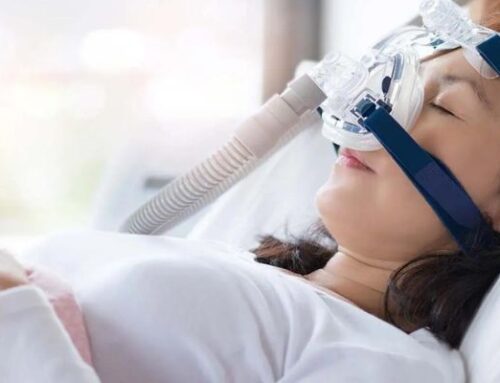Sleep apnea is a sleep disorder that affects millions of people worldwide. It’s characterized by breathing difficulties during sleep, which can cause snoring, choking and gasping for air. If left untreated, sleep apnea can lead to serious health issues, such as high blood pressure, heart disease and stroke. While there are many treatments available for sleep apnea, some individuals turn to alternative therapies, such as chiropractic care. Chiropractic is a non-invasive, drug-free approach that focuses on the health and wellness of the spine and nervous system.
The primary goal of chiropractic care is to improve the function of the nervous system by removing any interference that may be present. This is achieved through gentle adjustments to the spine, which can help alleviate pain, improve mobility and promote healing.
Can chiropractic care also help with sleep apnea?
Recent studies have shown that chiropractic care can alleviate some of the symptoms associated with sleep apnea. By improving the alignment of the spine and other parts of the body, chiropractic adjustments can reduce nerve interference and improve the function of the respiratory system. Chiropractic care can also help with the management of other underlying conditions that contribute to sleep apnea, such as chronic pain and stress.
Chiropractic care may be able to help with sleep apnea, and here’s how…
#1 Improves Breathing:
Chiropractic care can help improve breathing by addressing structural issues that may be contributing to sleep apnea. Misalignments in the spine or neck can cause tension in the muscles and soft tissues surrounding the airways, which can make breathing more difficult during sleep. Chiropractors can use techniques such as spinal adjustments and soft tissue mobilization to correct these misalignments, reduce tension and improve airflow. By improving breathing, chiropractic care can help reduce the symptoms of sleep apnea and improve overall sleep quality.
#2 Reduces Stress:

Stress is a common contributing factor to sleep apnea, and chiropractic care can help reduce stress and promote relaxation. Chiropractors may use techniques such as massage therapy and spinal adjustments to help reduce tension and improve circulation, which can help promote relaxation and reduce stress levels. By reducing stress, chiropractic care can help improve sleep quality and reduce the frequency and severity of sleep apnea episodes.
#3 Strengthens The Respiratory Muscles:

Chiropractic care can help strengthen the respiratory muscles, which can improve breathing and reduce the severity of sleep apnea episodes. Chiropractors may use exercises and stretches to strengthen the muscles that support the respiratory system, including the diaphragm and intercostal muscles. By strengthening these muscles, chiropractic care can improve the efficiency of breathing and reduce the likelihood of sleep apnea episodes.
#4 Improves Posture:
Poor posture can contribute to sleep apnea by restricting the airways and making breathing more difficult. Chiropractic care can help improve posture by correcting spinal misalignments and addressing muscle imbalances that may be contributing to poor posture. By improving posture, chiropractic care can reduce pressure on the airways and promote more efficient breathing. Additionally, improved posture can help reduce pain and discomfort that may be interfering with sleep quality, which can further improve the symptoms of sleep apnea.
#5 Enhances Nervous System Function:
Chiropractic care can enhance nervous system function, which can help improve sleep quality and reduce the severity of sleep apnea episodes. The nervous system controls many important bodily functions, including breathing, and disruptions to nervous system function can contribute to sleep apnea. Chiropractors may use techniques such as spinal adjustments and mobilization to correct misalignments in the spine, which can improve nervous system function and reduce the likelihood of sleep apnea episodes.
#6 Addresses Other Health Issues:
Chiropractic care can also address other health issues that may be contributing to sleep apnea. For example, obesity, high blood pressure and chronic pain are all common health issues that can increase the risk of sleep apnea. Chiropractors can work with patients to address these underlying health issues through a combination of chiropractic care, exercise and lifestyle modifications. By addressing these health issues, chiropractic care can help reduce the severity of sleep apnea and improve overall health and well-being.
Summary:
Overall, chiropractic care can be a beneficial treatment option for sleep apnea by improving breathing, reducing stress and promoting relaxation. However, it’s important to note that chiropractic care should be used in conjunction with other treatment options, such as continuous positive airway pressure (CPAP) therapy, and that individuals with sleep apnea should always consult with their healthcare provider before starting any new treatments.












